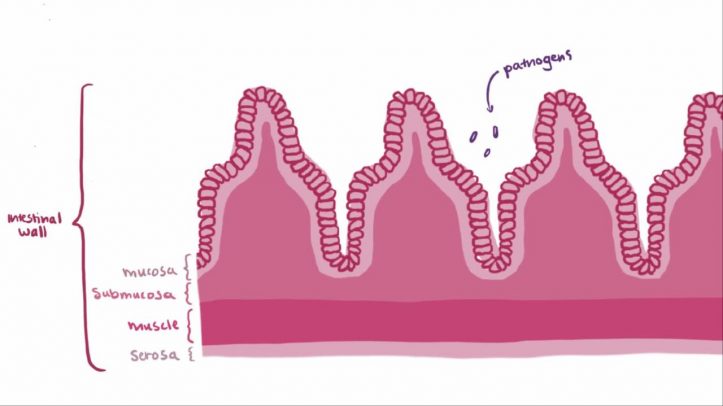What is Crohn’s disease? Crohn’s disease is an inflammatory bowel disease, which means that the inflammation occurs in the intestines, and not in the stomach or the head. The inflammation occurs because of the fact that the small intestine isn’t working properly. The inflammation can affect any part of the digestive system, and the resulting symptoms are diarrhea, abdominal pain, cramping, and even blood in the stool.
The cause of the inflammation is excessive activity of the immune system. Inflammation typically occurs in response to an infection, but it can also be caused by excess stress, diet, and certain medications. There are many different symptoms associated with Crohn’s disease, including fatigue, rectal bleeding, fever, loss of appetite, and sores in the mouth, anus, or vagina. These sores may bleed or sometimes appear on the skin.

Why is inflammation of the intestines so common in people with Crohn’s disease? The reason is that the body’s immune system has been set up to attack the intestinal lining. When there is an overabundance of inflammation, the intestinal lining can be damaged, forcing the body to respond by sending its white blood cells (panleukins) to the affected areas. The white blood cells will attempt to fight off the infection, but it doesn’t take long for this to become a problem. Instead of fighting off the infection, the white blood cells cause an increase in the inflammation, causing even further damage to the intestinal lining.
Some of the most typical symptoms may include abdominal pain, diarrhea, and rectal bleeding. Abdominal pain is often experienced as a result of a flare-up, and rectal bleeding can be a symptom of Crohn’s disease in the form of blood in the stool or vomit. Sometimes, there is a link between Crohn’s disease and iron deficiency. Iron plays a vital role in the absorption of essential vitamins and minerals. Deficiency of iron can lead to anemia, which can weaken the immune system.
When a doctor detects inflammation in the intestines, he or she orders a series of tests to rule out other diseases or causes. One test uses x-ray film to reveal whether or not the inflammation is caused by something that has entered the body. If the x-ray is positive, then the doctor will order an ultrasound to find out more about what is causing the inflammation in the intestine.
Another way to diagnose Crohn’s disease is through stool analysis. If a person has diarrhea for a long time, there is an increased possibility that they have Crohn’s. A healthcare provider will also check the patient’s skin for redness or swelling. Some patients may also complain of rectal bleeding, either temporary or long-term. Abdominal pain and cramping are also common in patients suffering from this condition. If a healthcare provider suspects the need for a biopsy, he or she will do an intestinal biopsy.
Treatment for Crohn’s varies based on the severity of the condition. Medications can help control symptoms, as well as alleviate the disease. In severe cases, surgery may help relieve the pain and swelling. Surgical options include sclerotherapy, radiofrequency ablation, and chemical peeling. Sclerotherapy is a treatment in which a healthcare provider injects a sclerosant into the area that is infected, which irritates the lining.
Radio frequency ablation involves using electric currents to shrink inflamed areas. Chemical peeling involves removing certain fatty acids from the digestive tract. Abdominal pain and diarrhea may happen after these treatments, which are rare. However, these treatments do not reverse the damage caused by inflammation and nutrients that are not absorbed by the body.